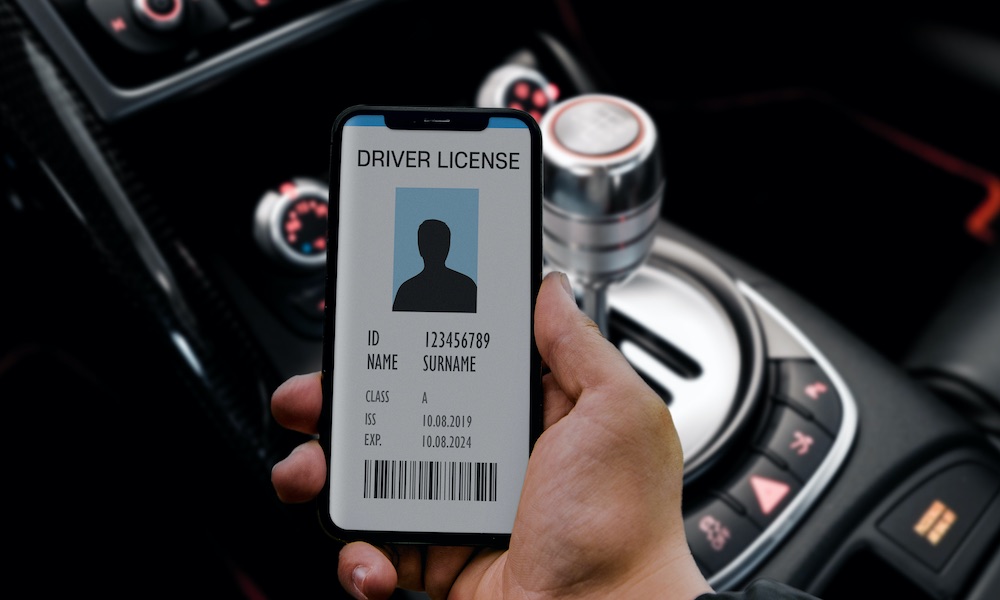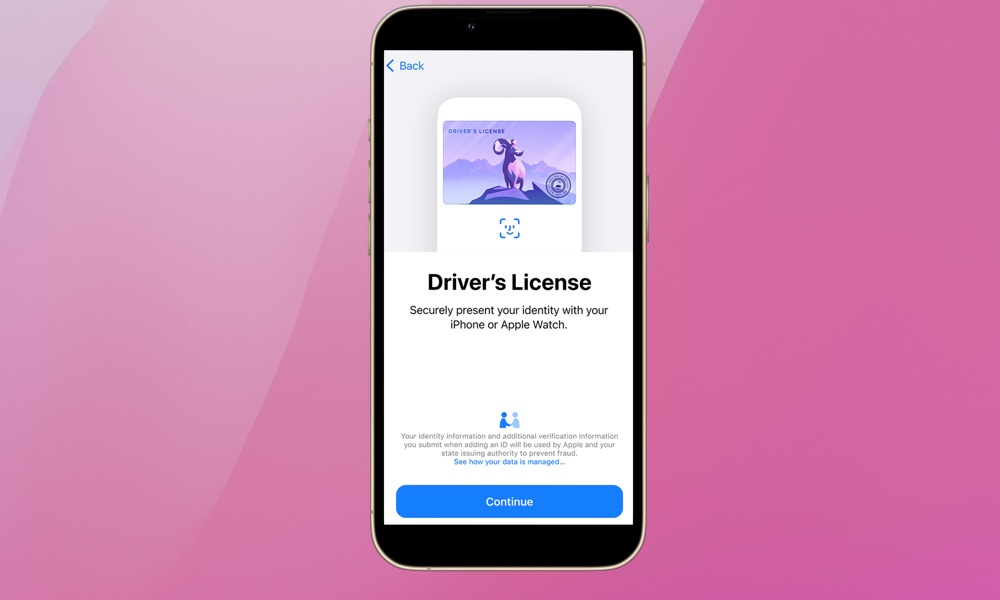Are Digital Driver’s Licenses a Matter of Time Everywhere?
 Credit: KaimDH / Shutterstock
Credit: KaimDH / ShutterstockToggle Dark Mode
A mobile driver’s license (mDL) is essentially your physical driver’s license or government-issued ID card stored on your iPhone, Apple Watch, or other smartphone. For iPhone users, your driver’s license or ID card is ideally able to be added to your Apple Wallet, much like payment cards, plane tickets, and movie passes, although in many cases, it’s accessed through a third-party app developed by the appropriate government agency.
So far, the adoption of this new technology has been slow. A few US states already embraced mDLs while several others are slowly moving in that direction, but most have yet to announce any real plans. In this post, we’ll explore some of the benefits and drawbacks of mDLs and which states are leading the charge.
Pros and Cons of a Digital ID
The benefits of a mDLs or other digital ID start with convenience. Many of us use Apple Pay to make purchases but still carry wallets to store our driver’s licenses. Digital IDs on iPhones are also typically much more secure, as there’s no separate card to be lost or misplaced, and you need to unlock your iPhone to access them.
However, your mDL could be less accessible than a lost physical license because of those same iPhone security features like passcodes and biometric authentication like Touch ID or Face ID.
Real-time updates for things like address changes would also be more expedient while at the same time reducing plastic waste, and mDLs can also expedite any proof of identity process for purchasing alcohol or gaining entry to a venue with an age requirement — and often do so without exposing any more personal information than necessary.
While the technology behind mDLs is an ISO standard, the biggest obstacle to widespread mDL adoption is the lack of a clear federal and state regulatory framework on how to issue and manage them. It’s easy to understand concerns about security risks and privacy concerns with regard to hacking and data breaches that could lead to fraud and identity theft. The socioeconomic divide is also a factor, as not everyone has access to an iPhone or smartphone, especially those with the necessary modern security features.

Digital IDs that support Apple Wallet are currently only available in four states: Arizona, Colorado, Georgia, and Maryland. Other states, like Florida and California, don’t use Apple’s Digital ID but have their own apps instead.
Whether they use Apple Wallet or their own app, DDLs still aren’t ready to replace physical driver’s licenses, as they can’t be used everywhere. The specifics vary from state to state, but you still need to carry your physical driver’s license when driving in any US state, even if you have a DDL on your iPhone.
Both Florida and California allow their mDLs to be used for age verification. This is typically accomplished using a QR code to make it easy for merchants to scan the mDL and get the necessary info from it. Apple’s Digital IDs also support age verification, but this is handled more securely via NFC, which has made things a bit more complicated and slowed down adoption. Apple added the ability for businesses to scan mDLs from Apple Wallet in last year’s iOS 17 release, but it’s not available as a standalone feature; it’s something developers have to build into their apps.
In addition to the four states using Apple’s Digital ID, Apple also lists five airports where the TSA allows the use of your iPhone to validate your ID:
- Baltimore/Washington International Thurgood Marshall Airport (BWI)
- Denver International Airport (DEN)
- Hartsfield-Jackson Atlanta International Airport (ATL)
- Phoenix Sky Harbor International Airport (PHX)
- Ronald Reagan Washington National Airport (DCA)
However, the TSA lists 21 additional airports where it’s accepting mDLs and other digital IDs “for limited testing and evaluation purposes,” plus at least eight more where it’s conducting pilot programs for digital IDs.
There are many other states exploring the adoption of mDLs with activities like pilot programs and legislation. Each state’s plans vary, so they could be pursuing mDLs with Apple or their own apps, like Florida and California have done.
Widespread transition to mDLs is seemingly inevitable but it’s likely to be a very slow process. In this case, we expect policy to move behind the pace of technology. Time will tell.







